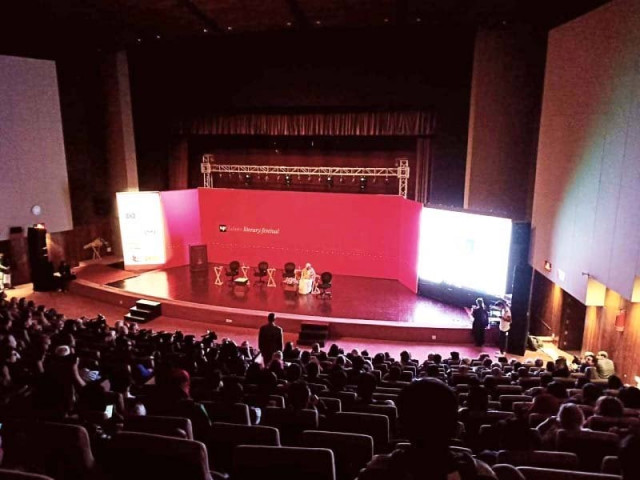Legacy of Faiz illuminates Lahore Literary Festival
Speakers highlight Faiz’s desire for world peace

PHOTO: EXPRESS
A slideshow and videos of Fiaz reciting his poetry in different mushahiras, his foreign tours and meetings with Nigah were shown at the beginning of the session. Afterward, the audio of the poetry read by Nigah was presented before the audience. The hall was almost packed to capacity.
Later on, Nigah started reading on her note on Faiz. She said she did not find herself capable of translating Faiz’s work into English. She said she did not have the courage and status to have a serious discussion on Faiz.
She quoted a meeting with the daughter of Faiz, Muneeza Hashmi in Karachi and said she had requested her to write something on her mother, Alice Faiz's book. “I refused and asked her to get it written from someone else,” she said. Muneeza replied saying that name a person left in the city who knew her father and mother in Karachi.
Nigah further said poetry was a hard genre of literature that could engross so many things in it. The only thing that it could not absorb was low-quality, she added. Nigah said the driving force behind Fiaz’s life and work was “a desire for world peace”. “It was when he joined the army. It was also when he was behind bars. The same was when he was writing editorials in Pakistan Times,” she added.
She also made Faiz’s comparison with his contemporaries especially Maulana Hasrat Mohani. She compared Faiz in a humorous way with Maulana regarding his dress, conversation style, behaviour in adverse situations etc.
Besides other things, Faiz’s poetry carries history in it and so many other things. She quoted Faiz’s poem after returning from Dhaka "hum kay thehray ajnabi itni madaraton kay bad".
She asserted that even jail and repression could not stop him from his mission and quoted his verse, “mata-e-loh-qalam chin gai hain to kiay gham, kay khoon-e-dil main daboli ungliyan leen hum ni”.
Nigah tried to bring a different revolutionary side of Faiz. She said that hate was associated with “Raqeeb” in Urdu literature’s tradition. Raqeeb was often termed “Raqeeb-e-roo Siyyah” in Urdu literature. However, Fiaz’s poem “Raqeeb se” was a deviation from it, she added.
Published in The Express Tribune, February 23rd, 2019.



















COMMENTS
Comments are moderated and generally will be posted if they are on-topic and not abusive.
For more information, please see our Comments FAQ